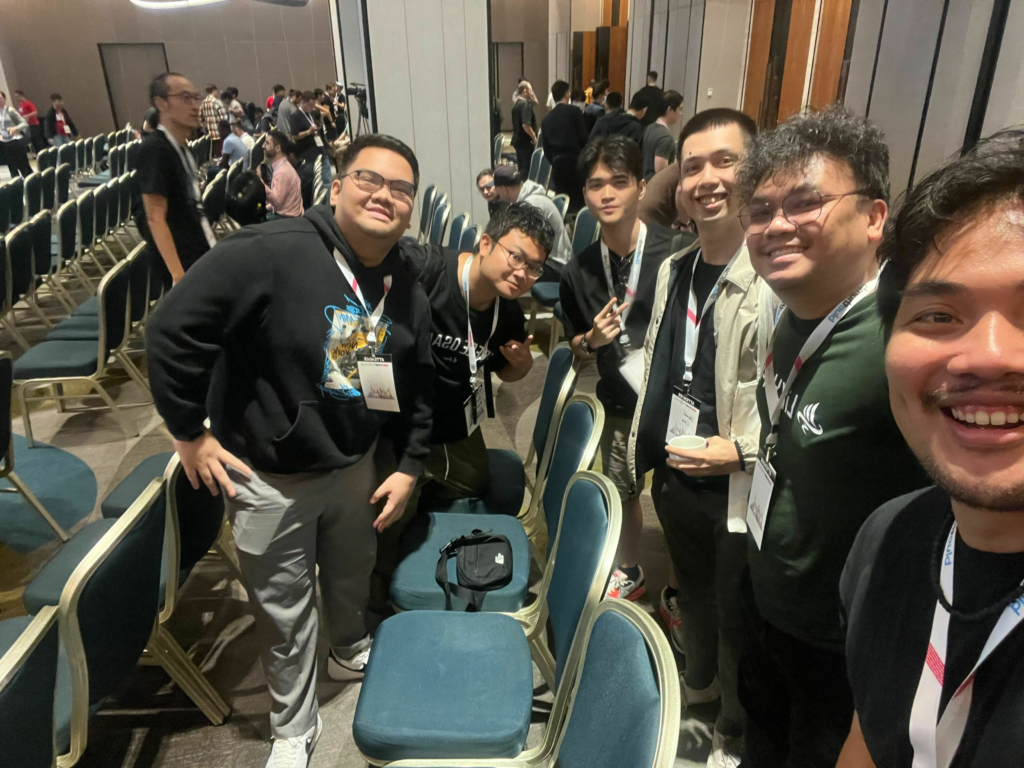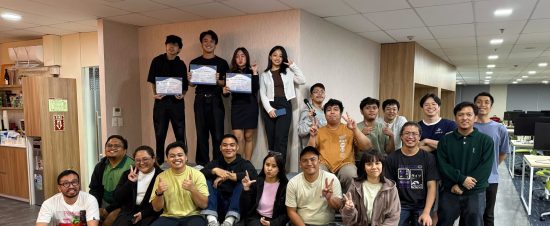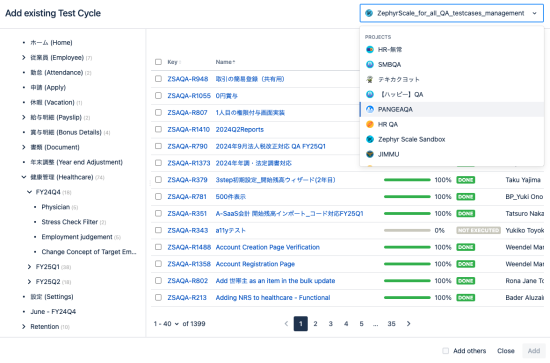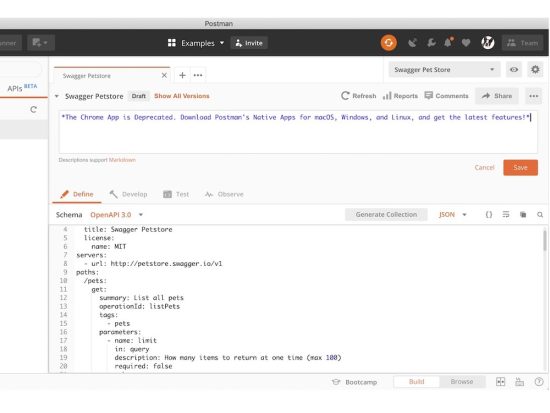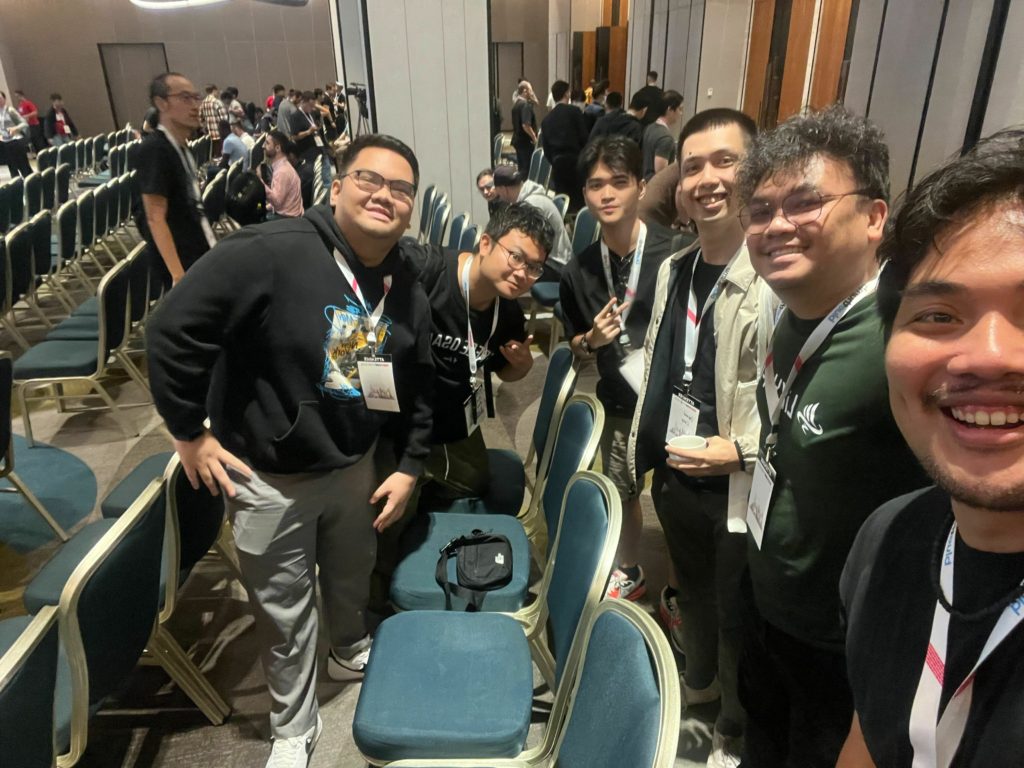
Through the Eyes of a Likha Dev: RubyConf 2023
- TECH BLOG
- Aldrin Delacruz
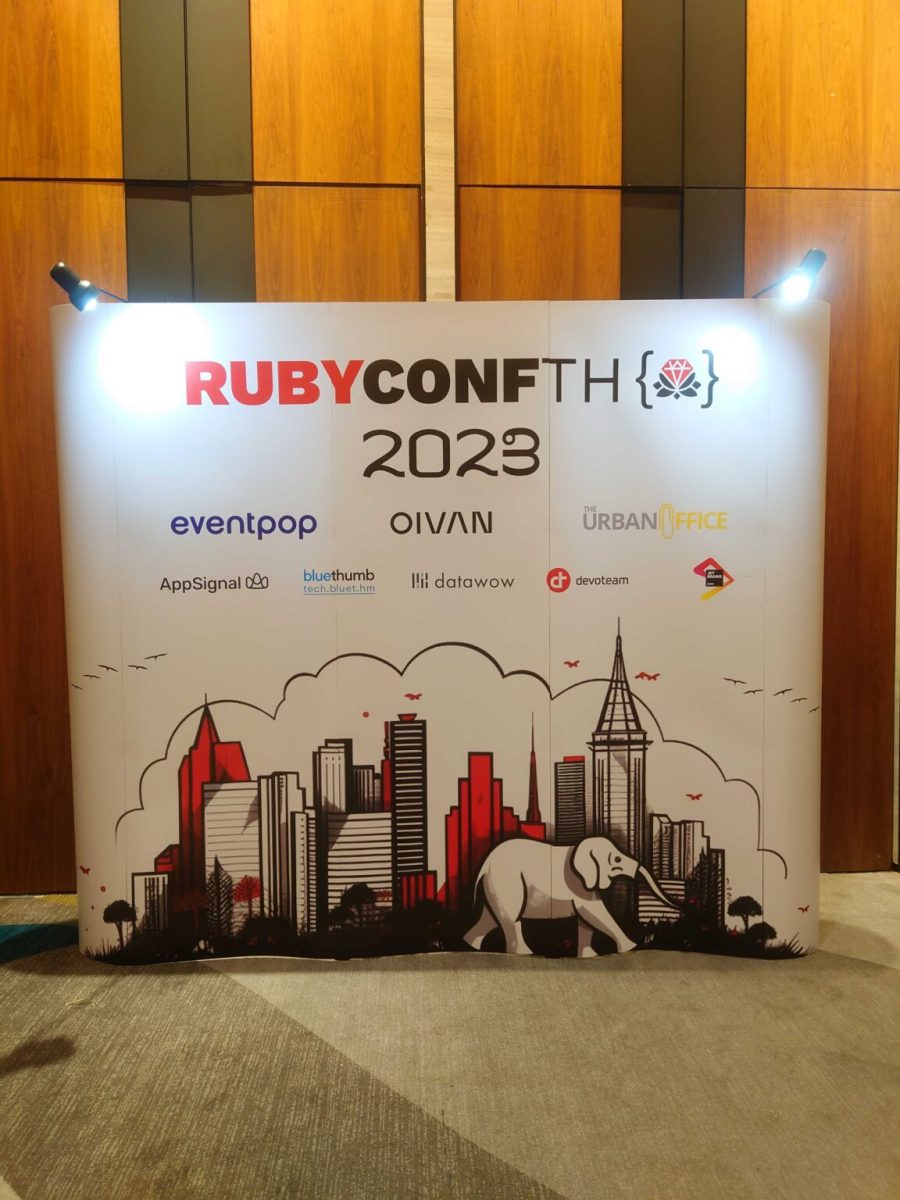
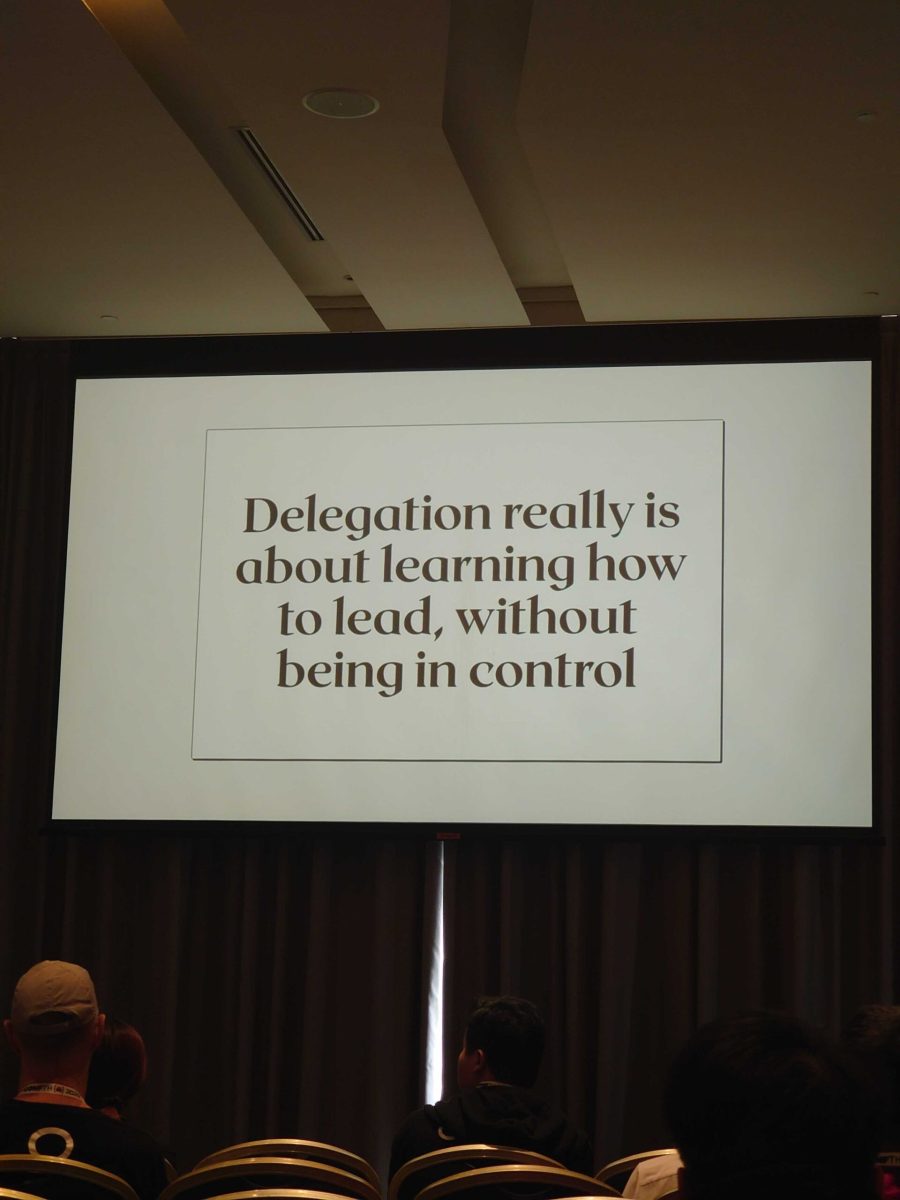
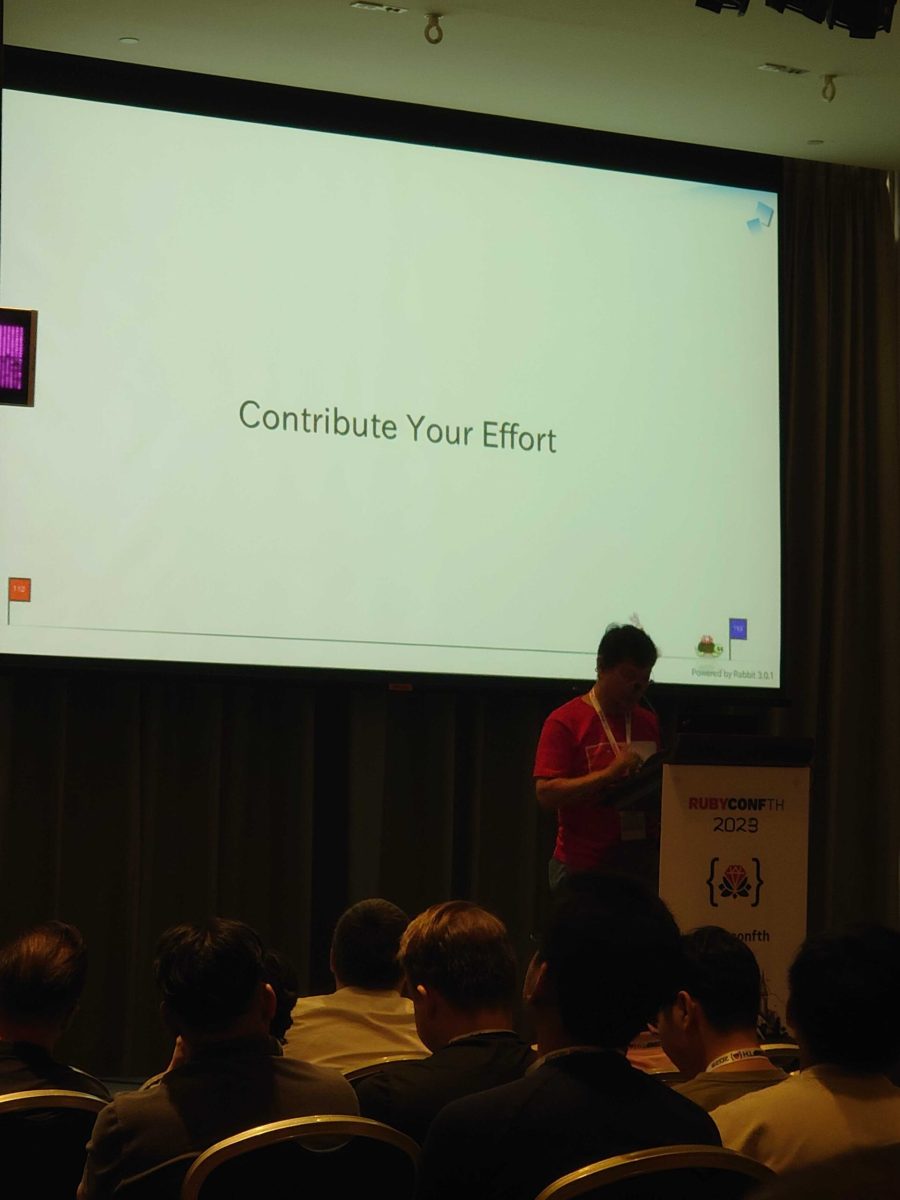
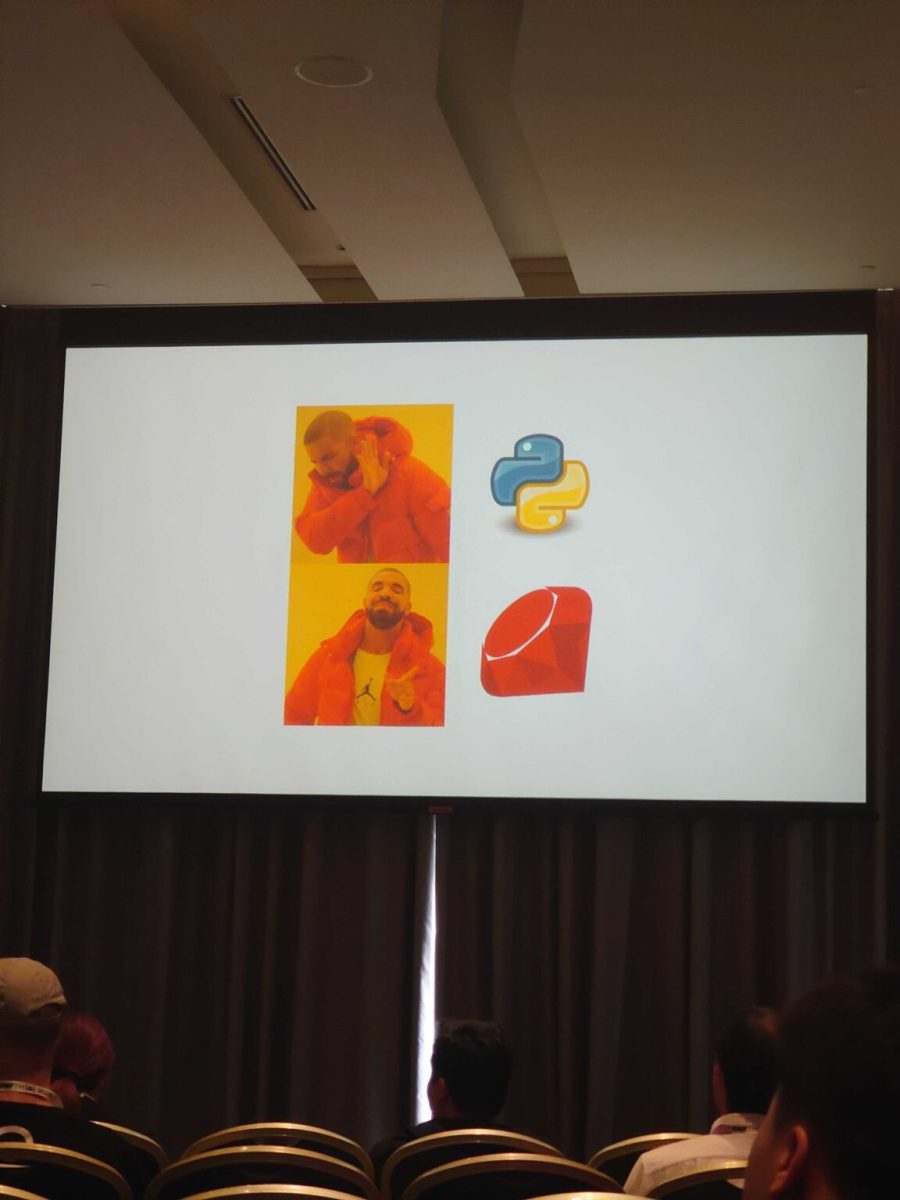
As a passionate Ruby Developer going back to RubyConf after four years, I sure did not know what to expect of the event. It was my first time in Bangkok, and looking back to the good experience I had in RubyConf Taiwan back in 2019, I was hoping that I will be leaving Thailand the same way I did then. Writing about it more than two months later, I think me and my fellow delegates — Marc, Matt, and Gerard — had a good conference and an overall good stay.
Going into the first day of the conference was like a blur. The hotel had this big ballroom draped in Ruby-red colors, with the stage at the center equipped with a keynote for the event speakers. I was surprised to see an old colleague from 2019 while getting coffee surrounded by more or less 200 people, including attendees, event organizers, and sponsors. After a short chitchat, I met with my fellow Likha delegates, and the event finally started.
The crowd went absolutely wild when we all saw Matz- founder, creator, and living legend of Ruby- and I must say that after four years, it looked like Matz had not aged. He was still the passionate and jolly genius we all knew. His talk was titled “30 Years of Ruby”, and he discussed the highs and lows of the beloved programming language as well as his and the Ruby Core Team’s plans for the future. After Matz exited the stage, I’m sure everyone wanted a photo with him, which they got. All of my fellow delegates snapped their selfies and groupies with him, but for some reason, those photos excluded me because I was busy getting in line for the chocolate donuts in the lobby. What a bummer.
Each of the speakers for days 1 and 2 came and went, and these are the ones that piqued my interest:
Component Driven UI with ViewComponent gem by Radoslav Stankov – it was good, but aside from the fact that I already heard this from another speaker in another conference, Radoslav had less time to discuss it than he should have had. After the talk, he should have discussed more of the topic so he could have gone more in-depth, which is where all the juicy parts would be.
Cultivating Instict by Katrina Owen – Other than it is a good topic, I was starstruck by the presence of Katrina Owen because she’s one of the authors of one of my favorite tech books, 99 Bottles of OOP.
Event Streaming Patterns for Ruby Services by Brad Urani – being a proponent of AWS SQS, Brad tackled using queues as an integral part of a particular architecture. He discussed so much in the little time he was given, and he could discuss the specifics in a very understandable way. Hats off to Brad.
Thai food wasn’t very good for me (but it was for Gerard), so during lunchtime, I was so happy to see Sashimi being served in the buffet. It goes without saying that I had a lot of it. Overall, the food at the conference was great; the organizers ensured that all attendees were well-spent at any point of the event.
Like I said, I did not go alone, so here are some thoughts from my fellow delegates.
From Matt:
The Ruby conference in Thailand left a lasting impression on me. Engaging with fellow attendees and experiencing the warm and welcoming atmosphere made it an unforgettable event. The keynote speeches were particularly insightful, offering a glimpse into Ruby’s evolution over the past 30 years.
Yukihiro “Matz” Matsumoto’s keynote, ’30 Years of Ruby,’ delved into significant moments from his journey in crafting Ruby, offering the audience a glimpse into the process of developing a language that resonates with a diverse global community. Beyond Matz’s individual achievements, the talk highlighted and celebrated the collective collaboration that has propelled Ruby’s widespread recognition and appreciation on a global scale.
Imagining the perspective of the language’s creator and witnessing how Ruby has positively impacted software development was truly inspiring. At this conference, we were allowed to connect with Matz personally, showcasing his humility and willingness to engage with the community. Not just with Matz but also with other professionals who had contributed much to the community.
The diverse range of keynote topics, including ‘Breaking Barriers — Empowering the Unbanked with Innovative Tech’ by Bernard Banta, ‘Popping into Ruby’ by Jemma Issroff, and ‘Thriving in Uncertainty’ by Ben Halpern, added depth to the conference. Each speaker brought a unique perspective, contributing to the overall richness of the event.
Attending this Ruby conference deepened my appreciation for the language and fostered connections with like-minded professionals. Looking back, it was an experience that went beyond the technical aspects, highlighting the vibrant and collaborative spirit of the Ruby community.
From Gerard:
In late October 2023, I had the great opportunity to attend RubyConf Thailand in Bangkok with other Likha and freee engineers. As a Manila-based Ruby software engineer, this experience offered me a perspective on the international software development scene and the connecting threads between Manila and Bangkok.
Bangkok gave off a vibe that was around 30% more organized, cleaner, and safer – in a nutshell, better than Metro Manila. The infrastructure was relatively similar, with a notable difference in Bangkok’s right-hand-drive roads. Despite the density, traffic seemed to flow better, even if it felt like there were more cars in Bangkok than in Manila. I hope Manila can fill the remaining gap and be an even greater city in the next few decades.
The first thing that struck me about the conference was the diversity in attendance; around 50% were international participants. It was an interactive melting pot, illustrating how technology and a shared passion for Ruby can unite us, regardless of nationality or tradition.
An essential highlight was meeting Yukihiro ‘Matz’ Matsumoto, the creator of Ruby. The groundwork he’s laid with his team over the past three decades is impressive. The biggest reminder from Matz was his fundamental belief in kindness. His message was powerful and personal: “Always be nice.”
My top pick from all the talks was Katrina Owen’s “Cultivating Instinct.” Her talk was all about becoming a professional at anything. She spoke about how professionals don’t really “think” anymore when they do their tasks; they just know what to do instinctively.
Apart from being a software engineer, I also enjoy learning all about jazz and jazz guitar so that I can cultivate instinct in my professional life and in my artistic pursuits.
The secret, she said, is to take three steps:
Step one is ‘brief classification episodes/exercises’:
This is a fancy way of saying we must practice a lot. If we’re looking to get better at programming (or jazz guitar!)- we need to take on a lot of challenges. Having a coding site, like codewars.com, or a jazz sheet music book (Real Book) means we won’t run out of complexity or variety with our classification episodes.
Step two is all about ‘active judgement’:
This is where we put our thinking caps on and work hard to solve all the problems we encounter in those challenges. This is the part where we apply what we already know to new challenges/exercises while actively trying our best to nail the exercise.
Step three is the ‘feedback’ part:
Here, a mentor comes into play to tell us how good (or not so good) we are doing. Learning from mistakes is a big part of growing!
Coming from a software development hub in Manila, the Thai scene did not seem wildly different. Yet, it was valuable to observe the nuances. One significant difference lies in their approach to STEM education. Thailand teaches STEM subjects in their native language, whereas, in the Philippines, English is the medium of instruction. The language barrier can prove challenging for promising young individuals who might otherwise excel in these tech-related fields.
Personally, I see potential in emphasizing local languages like Tagalog or Bisaya in our STEM curriculum to cultivate a more inclusive, talented pool of future software engineers. That said, our proficiency in English means Manila software engineers can fit comfortably into global teams, and we should continue to leverage this strength while addressing any hurdles.
One initiative already underway in Manila is our Likha x freee’s monthly tech meetup. This gathering targets both junior and senior engineers, fostering a sense of community and facilitating knowledge sharing. A similar sentiment echoed during the RubyConf panel interview, where it was mentioned that these meetup forums can engage and develop junior engineers.
I returned to Manila not only armed with fascinating insights and experiences but also with a renewed belief that Manila has the potential to provide high-quality engineers on a global level. My time at RubyConf Thailand 2023 was dually enlightening and enjoyable. As software engineers, remember to always, as Matz said, “be nice.” Let’s cultivate instinct and help better everyone’s skills in our local tech scene while we’re at it.
From Marc:
Reflecting on the RubyConf experience, I couldn’t help but appreciate the diverse and insightful talks that unfolded during the conference. The crowd’s excitement peaked when Matz, Ruby’s founder and living legend, took the stage. His talk on “30 Years of Ruby” was a journey through the highs and lows of the programming language, showcasing his unwavering passion.
One topic I liked was “Learn to delegate like a boss.” It recognizes delegation as a multifaceted skill applicable to coding and management roles. It’s not merely about assigning tasks but involves a strategic approach that can significantly impact efficiency, productivity, and team growth. Shifting my mindset from micromanagement to empowerment, as emphasized by the speakers, struck a chord with the challenges I’ve faced in leadership roles.
The conference that we attended wasn’t just about code; it was about growth, connections, and a deepened appreciation for Ruby’s evolution and its vibrant community. Meeting fellow developers and enthusiasts, witnessing Matz’s passion, and sharing moments with Likha colleagues made this journey memorable. I look forward to applying what I’ve learned and eagerly anticipate the next chapter in my Ruby journey.
On the plane returning to Manila, I thought of the events that transpired in the last four days. It was great. Aside from traveling to a Ruby conference, I also had the chance to bond with my fellow delegates. We see each other most days in the Likha office, but during this trip, I saw how cool these guys are.
I’d like to thank Mr. Satoshi Takano, head of the freee Global team, Ms. Kristine Montenegro, our President in Likha, and the Likha HR team for organizing everything for us before and after the event. Thank you for making this awesome trip possible! On to the next.
